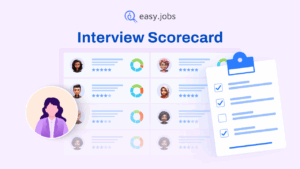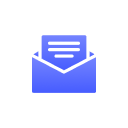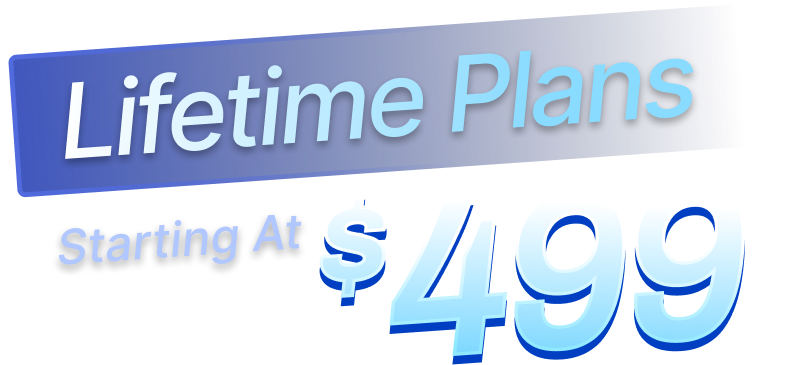Apakah Anda berpikir wawancara telepon hanyalah panggilan biasa? Pikirkan lagi: di tahun 2026, wawancara telepon adalah penentu karier Anda. Perekrut sangat memperhatikan cara Anda berbicara dan apa yang Anda katakan untuk memilih siapa yang akan lolos ke tahap selanjutnya. Anda bisa menjadi orang tersebut dengan jawaban yang jelas dan percaya diri. Bersiaplah untuk sukses dengan mengetahui 25 kiat wawancara telepon teratas. pertanyaan wawancara dan contoh dengan jawaban model, kiat persiapan sederhana, semuanya disusun untuk memandu Anda melalui setiap langkah.

Mengapa Wawancara Telepon Sangat Penting di Tahun 2026
Wawancara telepon telah menjadi langkah pertama dalam perekrutan. kerja hibrida dan jarak jauh Seiring berkembangnya perusahaan, kini perusahaan merekrut secara daring untuk menjangkau lebih banyak kandidat. Suara dan nada bicara Anda selama penyaringan awal ini dapat menentukan peluang Anda sebelum tahap tatap muka dimulai.
Banyak kandidat yang tersandung karena datang tanpa persiapan, melewatkan riset perusahaan, atau berbicara terlalu cepat. etika bertelepon, seperti kebisingan latar belakang atau “hmmm,” dapat meninggalkan kesan pertama yang buruk. Hindari kesalahan umum ini agar dapat tampil menonjol dan maju dengan percaya diri ke babak berikutnya.
25 Pertanyaan Umum Wawancara Telepon Dan Contoh
Mari kita persiapkan Anda untuk panggilan penyaringan penting itu, setelah Anda mempelajari cara memperkenalkan diri dan menyesuaikan diri dengan budaya perusahaan. Berikut adalah 25 pertanyaan wawancara telepon yang umum, yang diurutkan ke dalam kategori yang jelas.
Anggaplah ini sebagai peta jalan Anda. Peta ini mencakup segala hal mulai dari siapa Anda dan apa yang memotivasi Anda hingga cara Anda menangani tantangan dunia nyata dan menegosiasikan detail terakhir.
👤 Latar Belakang Inti & Pertanyaan Kesesuaian
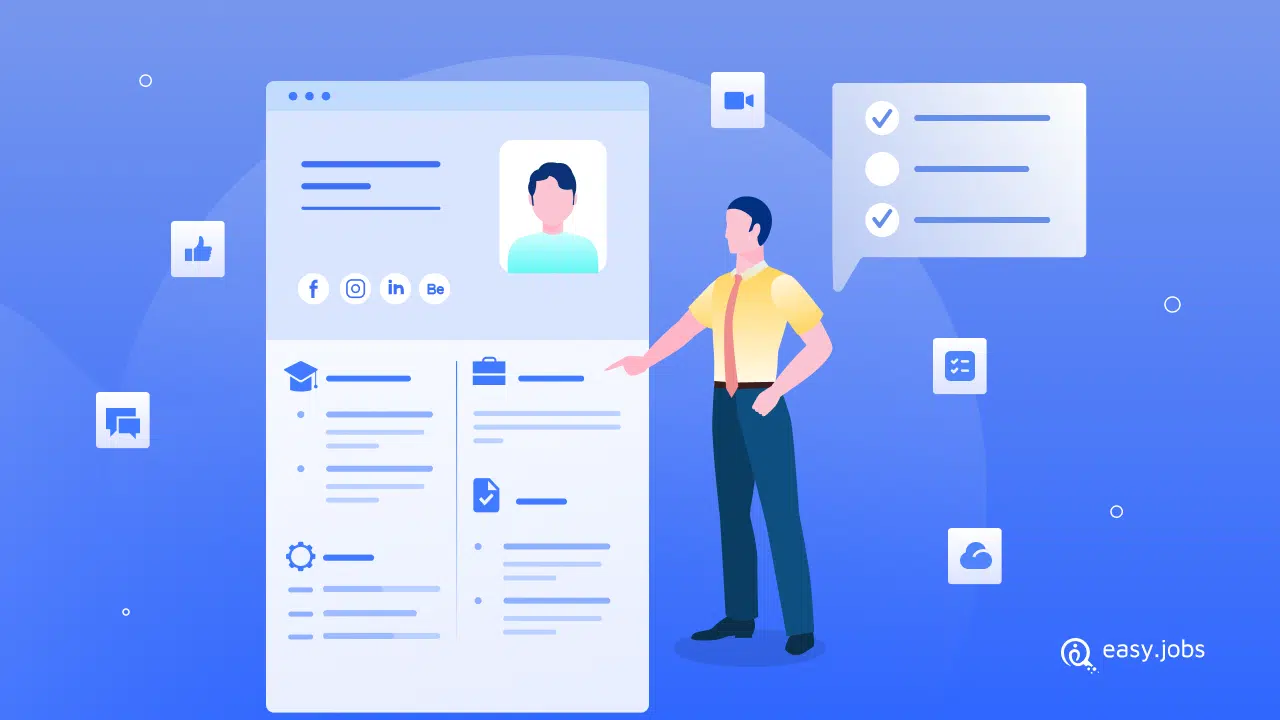
Sebelum membahas detailnya, perekrut ingin tahu siapa Anda dan mengapa pekerjaan Anda sebelumnya penting. Pertanyaan-pertanyaan ini memungkinkan mereka melihat apakah latar belakang Anda sesuai dengan peran tersebut dan seberapa baik Anda dapat menonjolkan bagian terpenting dari karier Anda.
1. Ceritakan Tentang Dirimu
Pertanyaan ini memberikan pewawancara gambaran sekilas tentang seberapa baik Anda menampilkan diri. Mereka ingin melihat apakah Anda dapat berkomunikasi dengan jelas dan tetap fokus. Cobalah Pendekatan Sekarang–Masa Lalu–Masa DepanBicarakan tentang apa yang sedang Anda lakukan sekarang, soroti beberapa pencapaian masa lalu, dan akhiri dengan rencana Anda selanjutnya.
“Saat ini saya bekerja sebagai koordinator pemasaran di Xcompany, di mana saya mengelola kampanye email yang menjangkau 20.000 pelanggan. Sebelumnya, saya bekerja di bidang penulisan konten selama dua tahun, mengembangkan postingan blog yang meningkatkan trafik situs sebesar 30%. Saya sangat antusias untuk membawa keterampilan tersebut ke tim yang sedang berkembang seperti tim Anda dan membantu mendorong lebih banyak keterlibatan di tahun 2026.”
Jawaban ini berhasil karena dibuka dengan peran Anda saat ini dan metrik yang jelas, lalu didukung dengan pencapaian masa lalu, yang menunjukkan dampak yang konsisten. Ditutup dengan menghubungkan keterampilan Anda dengan tujuan masa depan perusahaan, yang menunjukkan bahwa Anda berfokus untuk segera berkontribusi.
2. Jelaskan Resume Anda
Pertanyaan ini meminta Anda untuk menonjolkan bagian-bagian resume Anda yang paling penting untuk posisi ini. Pewawancara ingin melihat apakah Anda dapat menemukan detail yang tepat. Pilih tiga atau empat hal penting, seperti posisi sebelumnya, proyek yang Anda pimpin, atau keterampilan utama, yang sangat sesuai dengan persyaratan pekerjaan.
“Saya memulai karier sebagai asisten media sosial di Xcompany, tempat saya mengembangkan pengikut Instagram hingga 20%. Kemudian, saya pindah ke YCompany sebagai koordinator pemasaran, yang memimpin upaya email dan konten. Baru-baru ini, saya memimpin proyek yang mengintegrasikan CRM kami, yang meningkatkan rasio tindak lanjut hingga 25%.”
Jawaban ini menyoroti tiga peran utama dan menghubungkan masing-masing dengan hasil yang terukur. Pertumbuhan Instagram, koordinasi kampanye email dan peningkatan CRM menunjukkan perkembangan dan dampak. Hal ini memberi pewawancara narasi yang jelas dan terfokus tentang pengalaman Anda yang paling relevan tanpa membebani mereka dengan setiap detail.
3. Mengapa Anda Ingin Pekerjaan Ini?
Perekrut menanyakan hal ini untuk memastikan Anda telah mempelajari peran tersebut dan benar-benar peduli terhadapnya. Mereka ingin melihat bagaimana kekuatan dan minat Anda selaras dengan apa yang diperjuangkan perusahaan. Bersikaplah spesifik, sebutkan proyek, nilai, atau tujuan mereka yang membuat Anda bersemangat dan jelaskan mengapa hal itu penting bagi Anda.
“Saya mengagumi bagaimana EmbedTekan berfokus pada penceritaan berdasarkan data. Dengan latar belakang saya dalam analisis email dan penulisan kreatif, saya ingin membantu tim Anda menyusun pesan yang menginformasikan sekaligus menginspirasi.”
Jawaban ini secara langsung merujuk pada pendekatan berbasis data perusahaan dan menghubungkannya dengan keahlian spesifik Anda dalam analisis email dan penulisan kreatifIni menunjukkan bahwa Anda telah melakukan penelitian dan menggambarkan dengan jelas bagaimana keterampilan Anda akan mendukung misi mereka.
4. Mengapa Anda Mencari Peluang Baru?
Pewawancara menanyakan hal ini untuk memeriksa tanda-tanda bahaya dan memastikan alasan Anda positif. Mereka ingin tahu apa yang memotivasi Anda, apakah itu peluang untuk berkembang, mempelajari sesuatu yang baru, atau menghadapi tantangan baru. Pastikan jawaban Anda berfokus pada bagaimana langkah ini sejalan dengan tujuan Anda. tujuan karir dan keterampilan yang ingin Anda kembangkan.
“Saya telah belajar banyak dalam peran saya saat ini, tetapi saya siap untuk menangani peran yang lebih besar dan mengembangkan keterampilan kepemimpinan saya. Peran yang Anda tawarkan menawarkan skala dan bimbingan yang saya cari.”
Jawaban ini menjelaskan langkah Anda menuju pertumbuhan positif, menangani kampanye yang lebih besar, dan mengembangkan kepemimpinan daripada mengkritik peran Anda saat ini. Jawaban ini juga menunjukkan bahwa Anda telah menyamai penawaran khusus mereka (“skala dan bimbingan”) untuk tujuan karier Anda, membuktikan bahwa Anda telah mempertimbangkan mengapa peluang ini cocok.
5. Apa yang Anda Ketahui tentang Perusahaan Kami?
Pewawancara menanyakan hal ini untuk melihat apakah Anda telah berupaya keras untuk meneliti dan benar-benar memahami apa yang mereka lakukan. Sebutkan artikel berita terkini, peluncuran produk, atau nilai perusahaan yang menonjol bagi Anda. Kemudian jelaskan bagaimana wawasan tersebut terhubung dengan keterampilan Anda, dengan menunjukkan tidak hanya apa yang Anda ketahui, tetapi juga bagaimana Anda dapat memberikan nilai tambah.
"Saya membaca laporan Q1 Anda yang menunjukkan peningkatan 40% dalam retensi pelanggan setelah meluncurkan program loyalitas baru Anda. Saya terkesan dengan keberhasilan itu dan gembira dengan peluang untuk mendukung pertumbuhan lebih lanjut dengan strategi email yang terarah."
Jawaban ini berhasil karena mengutip hasil yang spesifik dan mengesankan dari laporan mereka sendiri, yang menunjukkan bahwa Anda telah mengerjakan pekerjaan rumah Anda. Menghubungkan keberhasilan itu dengan keahlian Anda dalam target strategi email, Anda menunjukkan dengan tepat bagaimana Anda dapat membantu mendorong pertumbuhan serupa.
💡 Motivasi & Budaya yang Sesuai

Setelah meninjau latar belakang dan keterampilan Anda, pewawancara akan menggali lebih dalam apa yang membuat Anda bersemangat dan bagaimana Anda bekerja.Mengapa" Dan "BagaimanaPertanyaan ini membantu mereka menentukan apakah motivasi dan gaya Anda cocok dengan tim mereka.
Saat Anda membagikan proyek tertentu yang Anda nikmati atau menggambarkan situasi yang membuat Anda berkembang, Anda membuktikan bahwa Anda berpikir melampaui tugas dan mencari tempat terbaik untuk menerapkan keterampilan Anda.
6. Apa yang memotivasi Anda?
Pewawancara menanyakan hal ini untuk memahami apa yang memotivasi Anda setiap hari dan apakah minat Anda sejalan dengan pekerjaan. Mereka ingin tahu apakah Anda bersemangat dengan kerja sama tim, pemecahan masalah, atau melihat hasil langsung dari pekerjaan Anda. Saat Anda menjawab, sebutkan contoh nyata. Anda dapat mengatakan:
“Saya termotivasi untuk mengatasi tantangan yang rumit dan melihat hasil yang jelas. Di pekerjaan terakhir saya, saya memimpin kampanye untuk mengurangi churn pelanggan. Kami memangkas churn sebanyak 15% dalam tiga bulan dengan menganalisis umpan balik dan menulis ulang email orientasi kami. Keberhasilan itu memberi saya energi dan menunjukkan kepada saya bagaimana penceritaan berdasarkan data dapat membuat perbedaan yang nyata.”
Jawaban ini menunjukkan antusiasme dan kemampuan Anda untuk memberikan dampak.
7. Bagaimana Anda Menggambarkan Lingkungan Kerja Ideal Anda?
Pewawancara menanyakan hal ini untuk melihat apakah Anda akan berkembang dalam lingkungan tim mereka. Pikirkan kembali tempat-tempat di mana Anda melakukan pekerjaan terbaik, mungkin perusahaan rintisan yang bergerak cepat atau kelompok yang kompak yang berbagi ide secara bebas. Jelaskan suasana yang Anda nikmati dan mengapa hal itu membantu Anda tetap termotivasi dan produktif. Misalnya:
“Saya berkembang dalam ruang kolaboratif tempat ide mengalir bebas dan umpan balik didorong. Dalam peran saya sebelumnya, sesi curah pendapat mingguan kami menghasilkan perubahan cepat dan ide konten baru. Saya juga menghargai fleksibilitas—mampu mengatur jadwal saya sendiri saat menangani proyek kreatif membantu saya tetap fokus dan inventif.”
Ini menunjukkan Anda tahu apa yang membantu Anda sukses dan Anda telah memikirkan bagaimana Anda akan menyesuaikan diri.
8. Apa Kekuatan Anda?
Pertanyaan ini memberi Anda kesempatan untuk menonjolkan keterampilan terbaik Anda dengan bukti nyata. Pilih dua atau tiga kekuatan yang berhubungan langsung dengan deskripsi pekerjaan. Jelaskan masing-masing dan dukung dengan contoh singkat. Misalnya:
“Salah satu kelebihan saya adalah komunikasi yang jelas—saya memimpin rapat lintas departemen untuk menyelaraskan sasaran pemasaran dan penjualan, yang meningkatkan tindak lanjut prospek hingga 20%. Kelebihan lainnya adalah perhatian terhadap detail—saya membuat templat email bebas kesalahan yang meningkatkan rasio buka hingga 10%. Terakhir, saya mudah beradaptasi; ketika tim kami beralih ke pekerjaan jarak jauh, saya dengan cepat mempelajari alat baru dan menjaga proyek kami tetap berjalan.”
Di sini, Anda memberi pewawancara keyakinan atas kemampuan Anda dengan menghubungkan setiap kekuatan dengan hasil yang konkret.
9. Apa kelemahan Anda?
Berbicara tentang kelemahan menunjukkan kesadaran diri dan keinginan untuk memperbaiki diri. Pilih sesuatu yang nyata tetapi tidak penting bagi bagian utama pekerjaan, dan jelaskan apa yang Anda lakukan untuk menjadi lebih baik. Misalnya:
“Saya terkadang kesulitan berbicara di depan umum, terutama dalam kelompok besar. Untuk mengatasinya, saya bergabung dengan klub Toastmasters setempat dan mengajukan diri untuk menyampaikan presentasi di rapat bulanan kami. Selama enam bulan terakhir, saya telah memimpin tiga presentasi dan merasa jauh lebih percaya diri saat berbicara di depan orang banyak.”
Jawaban ini jujur dan menunjukkan komitmen Anda terhadap pertumbuhan.
10. Apa gaya manajemen Anda?
Saat melangkah ke peran kepemimpinan, manajer perekrutan ingin tahu bagaimana Anda akan mendukung dan membimbing tim Anda. Ingat saat Anda menetapkan tujuan yang jelas, memberikan umpan balik yang bermanfaat, atau membimbing seseorang untuk berkembang. Jelaskan pendekatan Anda, dengan fokus pada pemeriksaan rutin, memercayai tim Anda dengan otonomi, atau menggunakan pelatihan langsung untuk meningkatkan kinerja.
“Saya percaya pada penetapan ekspektasi yang jelas dan pemberian otonomi kepada orang-orang. Dalam peran terakhir saya, saya bertemu langsung dengan setiap anggota tim setiap minggu untuk membahas kemajuan mereka dan hambatan apa pun. Saya juga mendorong umpan balik dari rekan kerja dan menyelenggarakan lokakarya triwulanan untuk berbagi praktik terbaik. Pendekatan ini membantu tim saya memenuhi 95% tenggat waktu proyek kami dan meningkatkan moral.”
Dengan menguraikan rutinitas dan hasil yang spesifik, jawaban ini menunjukkan bahwa Anda terorganisasi, suportif, dan berorientasi pada hasil, kualitas yang akan dihargai oleh setiap pemberi kerja.
🚀 Petunjuk Khusus Peran dan Perilaku

Setelah Anda menunjukkan bagaimana Anda cocok peran dan budaya, sekarang saatnya untuk menyelami “Bagaimana” pekerjaan Anda. Pertanyaan-pertanyaan ini menggali pemecahan masalah sehari-hari Anda, bagaimana Anda bangkit kembali ketika terjadi kesalahan, dan bagaimana Anda mendorong hasil.
Pewawancara ingin mendengar tentang tantangan nyata, pelajaran yang dipetik dari kemunduran, dan bagaimana Anda menjaga proyek tetap berjalan, terutama saat tenggat waktu semakin dekat atau sumber daya semakin menipis.
11. Jelaskan Tanggung Jawab Pekerjaan Anda Saat Ini
Manajer perekrutan menanyakan hal ini untuk melihat dengan tepat apa yang Anda lakukan setiap hari dan bagaimana hal itu sesuai dengan peran yang Anda lamar. Saat Anda menjawab, fokuslah pada tugas yang memiliki dampak terbesar, terutama yang dapat Anda ukur. Misalnya:
“Dalam peran saya saat ini sebagai ahli strategi konten, saya merencanakan dan mengawasi kalender blog bulanan kami, menulis dan mengedit artikel yang mendorong lalu lintas. Triwulan lalu, saya memperkenalkan proses yang berfokus pada kata kunci yang meningkatkan kunjungan organik sebesar 25%. Saya juga berkoordinasi dengan tim desain dan SEO untuk memastikan setiap postingan memenuhi standar kualitas kami.”
Dengan menyoroti tugas dan hasil tertentu, Anda menunjukkan bahwa Anda memahami nilai Anda dan bagaimana Anda akan membawanya ke pekerjaan baru.
12. Ceritakan padaku tentang saat kamu gagal
Pertanyaan ini bukan untuk mengejutkan Anda. Mereka ingin melihat bagaimana Anda menangani kemunduran dan bangkit dari kemunduran tersebut. Susun jawaban Anda dengan metode STAR: jelaskan situasinya, garis besar tugasnya, jelaskan tindakan yang Anda ambil, dan bagikan hasilnya. Misalnya:
“Situasi:Tim kami melewatkan tenggat waktu utama karena kami meremehkan revisi konten. Tugas:Saya perlu mengembalikan kita ke jalur yang benar. Tindakan:Saya mengatur ulang alur kerja kami, menambahkan rapat check-in dan tenggat revisi yang jelas. Hasil: Kami berhasil menyelesaikannya dalam waktu dua minggu dan menyelesaikan proyek tanpa masalah kualitas. Saya belajar pentingnya jadwal yang realistis dan komunikasi yang teratur. Saya menggunakan metode ini dalam proyek-proyek saya yang lain.”
Jawaban ini menunjukkan bahwa Anda mengakui kesalahan Anda, mengambil langkah-langkah praktis untuk memperbaikinya dan mengubah tantangan menjadi peluang pembelajaran.
13. Berikan Contoh Proyek yang Menantang
Pewawancara ingin tahu bagaimana Anda menangani tugas-tugas sulit dan beradaptasi ketika terjadi kesalahan. Pilih proyek dengan kendala yang jelas dan jelaskan bagaimana Anda mengatasinya. Misalnya:
“Tahun lalu, saya memimpin desain ulang situs web dengan anggaran terbatas dan waktu yang singkat. Kami kekurangan beberapa sumber daya utama, jadi saya bernegosiasi dengan desainer lepas untuk mendapatkan potongan harga dan memprioritaskan kembali fase pengembangan. Dengan berfokus terlebih dahulu pada halaman dengan lalu lintas tinggi, kami meluncurkannya sesuai jadwal dan melihat peningkatan kecepatan pemuatan halaman sebesar 15%, yang meningkatkan keterlibatan pengguna.”
Ini menunjukkan Anda mampu berdaya upaya, strategis, dan fokus pada tujuan akhir.
14. Bagaimana Anda menangani stres dan tekanan?
Semua orang menghadapi stres di tempat kerjaPewawancara ingin melihat apakah Anda tetap tenang dan produktif di bawah tekanan. Jelaskan metode perencanaan dan taktik perawatan diri Anda. Misalnya:
“Saya mengelola periode penuh tekanan dengan membagi tugas menjadi langkah-langkah yang lebih kecil dan menggunakan papan proyek bersama sehingga setiap orang mengetahui tenggat waktu mereka. Saya juga menyediakan waktu istirahat singkat—rapat sambil berjalan atau peregangan singkat—untuk mengisi ulang tenaga. Selama musim tersibuk kami pada kuartal lalu, pendekatan ini membantu saya menyelesaikan proyek tepat waktu tanpa kehabisan tenaga.”
Jawaban ini menyeimbangkan strategi organisasi konkret dengan kesejahteraan pribadi praktik, yang menunjukkan bahwa Anda praktis dan berkelanjutan di bawah tekanan.
15. Ceritakan tentang pencapaian terbesarmu
Ini adalah kesempatan Anda untuk menyoroti momen yang Anda banggakan, idealnya momen yang menggambarkan keterampilan yang dibutuhkan pekerjaan baru tersebut. Pilih contoh yang dapat Anda ukur, lalu jelaskan dampaknya. Misalnya:
“Pencapaian terbesar saya adalah meluncurkan program rujukan pelanggan yang saya rancang dan kelola secara menyeluruh. Dalam waktu enam bulan, rujukan tersebut mencapai 20% dari pendaftaran baru kami, menghasilkan pendapatan bulanan tambahan sebesar $50.000. Melihat umpan balik positif dari pelanggan dan tim penjualan membuat semua upaya itu sepadan.”
Berbagi angka nyata dan umpan balik membuat keberhasilan Anda nyata dan mudah diingat.
📋 Logistik & Langkah Berikutnya
Setelah Anda menunjukkan keterampilan dan kecocokan Anda, pewawancara harus membahas detail praktis yang membuat Anda diterima. Pertanyaan-pertanyaan ini menjelaskan kebutuhan dan jadwal Anda serta memberi Anda kesempatan terakhir untuk mengonfirmasi minat bersama. Jawab dengan jujur dan jelas, sehingga tidak ada kejutan saat tiba saatnya menandatangani penawaran.
16. Berapa Harapan Gaji Anda?
Manajer perekrutan menanyakan hal ini lebih awal untuk memastikan kisaran gaji Anda sesuai dengan anggaran mereka. Sebaiknya Anda meneliti gaji yang sesuai untuk posisi Anda dan memberikan kisaran gaji yang fleksibel. Misalnya:
“Berdasarkan penelitian dan pengalaman saya, saya mencari $60.000–$70.000, tetapi saya terbuka untuk membahas manfaat dan peluang pertumbuhan.”
Ini menunjukkan Anda memahami pasar dan bersedia mencari angka yang adil bagi kedua belah pihak.
17. Kapan Anda Bisa Memulai?
Pewawancara menanyakan hal ini untuk memahami ketersediaan Anda dan merencanakan jadwal orientasiJika Anda perlu memberikan pemberitahuan di pekerjaan Anda saat ini, sampaikan dengan jujur berapa lama waktu yang dibutuhkan. Jika Anda sedang senggang, beri tahu mereka agar mereka dapat melanjutkan tanpa penundaan. Misalnya:
“Saya akan memberikan pemberitahuan standar dua minggu kepada atasan saya saat ini, sehingga saya bisa mulai bekerja pada tanggal 1 Juni, atau lebih cepat jika itu lebih baik.”
Jawaban ini jujur dan memberikan tanggal yang jelas, sekaligus menunjukkan fleksibilitas untuk memenuhi kebutuhan perusahaan.
18. Apakah Anda Sedang Wawancara dengan Perusahaan Lain?
Pewawancara menanyakan hal ini untuk memahami seberapa aktif pencarian Anda dan apakah peluang lain dapat memengaruhi jadwal mereka. Bersikap transparan membangun kepercayaan, tetapi Anda juga ingin menunjukkan antusiasme yang tulus terhadap peran ini. Susun jawaban Anda untuk menyoroti bahwa saat Anda mengeksplorasi opsi, posisi ini menonjol. Misalnya:
“Saya sedang berdiskusi dengan beberapa tim lain, tetapi fokus perusahaan Anda pada inovasi benar-benar menonjol bagi saya, dan saya sangat gembira dengan kesempatan ini.”
Di sini, Anda telah dengan jujur mengakui wawancara lain sambil mengklarifikasi bahwa kesempatan ini adalah pilihan utama Anda, menunjukkan integritas dan minat yang kuat.
19. Apakah Anda Memiliki Pertanyaan untuk Saya?
Pertanyaan ini akan memberikan Anda kata akhir dalam wawancara dan menunjukkan minat Anda yang tulus terhadap peran tersebut. Daripada mengatakan “TIDAK,” persiapkan tiga pertanyaan yang bijaksana dan spesifik untuk peran yang membantu Anda mempelajari lebih lanjut dan memperkuat keterlibatan Anda. Topik yang bagus meliputi struktur tim, cara mengukur keberhasilan, dan jalur pertumbuhan potensial. Misalnya:
“Bisakah Anda memberi tahu saya bagaimana tim ini mengukur keberhasilan dalam tiga bulan pertama?”
Dengan mengajukan pertanyaan terperinci, Anda menunjukkan bahwa Anda telah merenungkan peran tersebut, peduli dalam melakukan pekerjaan dengan baik, dan sudah membayangkan diri Anda berkontribusi terhadap tim.
20. Pengalaman relevan apa yang Anda miliki?
Perekrut menanyakan hal ini untuk memastikan latar belakang Anda sesuai dengan kebutuhan inti dari peran tersebut. Daripada mencantumkan setiap pekerjaan yang pernah Anda pegang, fokuslah pada tiga pengalaman utama Anda yang terkait langsung dengan tanggung jawab utama posisi tersebut. Jelaskan secara singkat masing-masing dan tekankan hasil yang Anda capai. Misalnya:
“Saya telah memimpin tiga kampanye email utama yang masing-masing menghasilkan peningkatan keterlibatan 20%, mengelola proyek integrasi CRM dengan tenggat waktu yang ketat, dan melatih staf junior tentang praktik terbaik konten.”
Jawaban ini berfokus pada tiga pencapaian konkret, menggunakan metrik yang jelas untuk menunjukkan dampak dan secara langsung menghubungkan pengalaman Anda dengan keterampilan yang dibutuhkan peran baru tersebut.
⚡ Bonus Pertanyaan Cepat
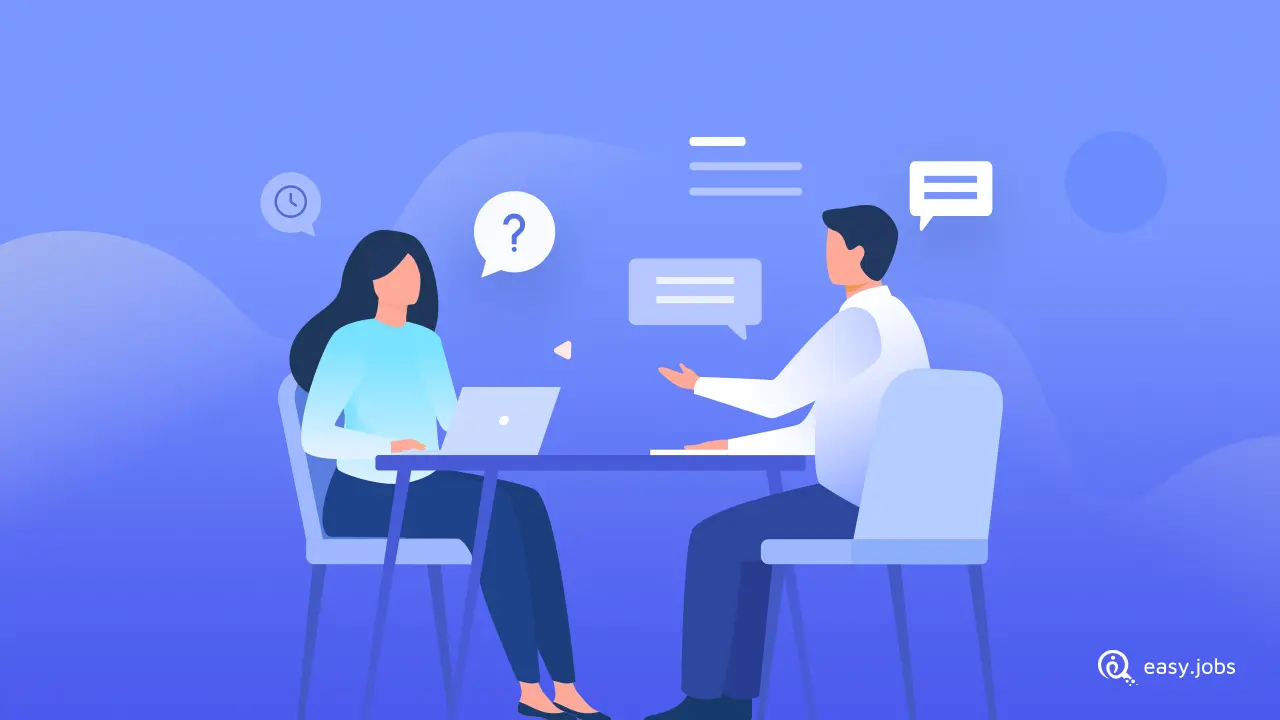
Pertanyaan cepat ini dimaksudkan untuk melihat seberapa cepat dan jelas Anda dapat menjawab tanpa naskah. Alih-alih cerita lengkap, siapkan dua atau tiga poin penting untuk setiap pertanyaan sehingga Anda dapat memberikan jawaban yang meyakinkan dan langsung.
21. Apa tujuan karier Anda?
Saat pewawancara menanyakan tujuan karier Anda, mereka ingin tahu apakah tujuan Anda sesuai dengan arahan perusahaan. Ini bukan ajakan untuk mengumbar ambisi besar. Sebaliknya, mereka mencari bukti bahwa Anda telah memikirkan jalan hidup Anda dan melihat masa depan bersama mereka.
"Selama dua tahun ke depan, saya bermaksud untuk mengambil lebih banyak tanggung jawab kepemimpinan dengan membimbing anggota tim junior dan mengelola proyek-proyek kecil. Dalam lima tahun, saya ingin membentuk strategi sebagai manajer konten senior, membantu mendorong suara merek kami di berbagai saluran."
Respons ini spesifik dan realistis, menguraikan langkah-langkah jangka pendek dan aspirasi jangka panjang. Respons ini menunjukkan bahwa Anda termotivasi untuk belajar dan berkembang, sekaligus memberi pewawancara keyakinan bahwa rencana Anda selaras dengan peluang perusahaan.
22. Mengapa Kami Harus Mempekerjakan Anda?
Pertanyaan ini memberi Anda kesempatan terakhir untuk menjual diri Anda. Pewawancara menginginkan promosi singkat yang menunjukkan mengapa Anda adalah yang paling cocok. Fokus pada dua atau tiga kekuatan yang secara langsung menjawab kebutuhan utama mereka, didukung oleh hasil atau contoh nyata.
“Anda harus mempekerjakan saya karena saya memiliki rekam jejak yang terbukti mampu meningkatkan keterlibatan email hingga 30% melalui pengujian A/B yang tertarget, keterampilan kolaborasi yang kuat yang membantu tim terakhir saya mengurangi waktu produksi hingga 15%, dan kemampuan beradaptasi untuk mempelajari alat baru dengan cepat—seperti ketika saya menguasai CRM baru kami hanya dalam waktu satu minggu.”
Jawaban ini menyoroti kekuatan spesifik yang terkait dengan hasil yang dapat diukur, membuktikan Anda memahami persyaratan peran dan dapat memenuhinya.
23. Anggota tim seperti apa yang Anda sukai untuk bekerja sama?
Manajer perekrutan menanyakan hal ini untuk memahami bagaimana Anda akan cocok dengan dinamika tim mereka saat ini dan memastikan gaya kolaborasi Anda selaras dengan gaya mereka. Mereka ingin tahu bahwa Anda menghargai sifat-sifat yang mereka hargai, baik itu komunikasi terbuka, keandalan, atau pemecahan masalah yang kreatif. Jawaban Anda harus menyoroti kualitas yang Anda kagumi dan mengaitkannya kembali dengan contoh nyata.
“Saya bekerja paling baik bersama anggota tim yang berkomunikasi secara terbuka dan bertanggung jawab atas tugas mereka. Misalnya, ketika saya berkolaborasi dengan tim lintas fungsi pada peluncuran produk terakhir kami, setiap orang berbagi informasi kemajuan setiap hari dan secara proaktif menyampaikan masalah. Tingkat transparansi tersebut membantu kami mengidentifikasi hambatan sejak dini dan menyelesaikannya tepat waktu.”
Respons ini menunjukkan Anda menghargai komunikasi dan akuntabilitas yang jelas dan menggambarkan bagaimana sifat-sifat tersebut menghasilkan kerja sama tim yang sukses.
24. Ceritakan kepada kami tentang riwayat pekerjaan Anda.
Sorot tiga peran atau pencapaian yang paling sesuai dengan posisi ini, misalnya, “Integrasi CRM yang dikelola yang meningkatkan tindak lanjut prospek sebanyak 25%,” untuk memberikan gambaran fokus tentang latar belakang Anda.
25. Bagaimana Anda Tetap Mengikuti Tren Industri?
Pewawancara menanyakan hal ini untuk melihat apakah Anda mengambil inisiatif untuk tetap relevan dan berkembang secara profesional. Mereka ingin tahu apakah Anda akan membawa ide-ide segar dan metode terkini ke dalam tim.
“Saya menyisihkan satu jam setiap minggu untuk kursus online—baru-baru ini, saya menyelesaikan Sertifikasi Google Analytics dan ikuti tiga blog industri untuk berita baru tren pemasaran emailSaya juga menghadiri satu konferensi virtual setiap kuartal.”
Di sini, Anda menunjukkan kebiasaan belajar yang jelas dan berkelanjutan (kursus mingguan, sertifikasi) dan menggunakan berbagai saluran (blog, konferensi), membuktikan bahwa Anda akan tetap menjadi yang terdepan.
📝 Cara Mempersiapkan Diri Menghadapi Pertanyaan dalam Wawancara
Setelah mengetahui pertanyaan kunci dan contoh jawaban, saatnya mempersenjatai diri dengan rencana persiapan yang matang untuk pertanyaan yang diajukan dalam wawancara selama panggilan pertama. Sedikit persiapan akan sangat membantu untuk terdengar percaya diri dan cekatan dalam panggilan tersebut.
Teliti Peran dan Perusahaan
Sebelum wawancara Anda, kunjungi situs web perusahaan, baca artikel berita atau siaran pers terbaru dan pindai ulasan karyawan di Pintu kacaCarilah informasi terperinci tentang produk, nilai, atau rencana pertumbuhan mereka. Apa pun yang menunjukkan bahwa Anda telah melakukan pekerjaan rumah. Semakin banyak yang Anda ketahui, semakin mudah untuk memasukkan wawasan tersebut ke dalam jawaban Anda dan mengajukan pertanyaan cerdas di akhir.
Buat Lembar Contekan Ponsel Anda
Salah satu keuntungan besar dari wawancara telepon adalah Anda dapat memiliki catatan di depan Anda. Pada selembar kertas atau dalam dokumen sederhana, tuliskan poin-poin penting untuk setiap pertanyaan utama: metrik kunci, nama proyek, atau pengingat metode STAR. Jaga agar tetap rapi dan teratur sehingga Anda dapat melihat sekilas dengan cepat tanpa kehilangan alur pikiran Anda.
Jalankan Wawancara Tiruan
Latihan akan menghasilkan kesempurnaan. Mintalah teman atau anggota keluarga untuk berperan sebagai pewawancara, atau rekam diri Anda saat menjawab beberapa pertanyaan. Fokuslah untuk berbicara dengan kecepatan yang stabil, gunakan nada yang ramah, dan berhentilah sejenak saat Anda butuh waktu untuk berpikir. Putar ulang rekaman untuk menangkap setiap “ehm”atau bagian yang terburu-buru, dan perbaiki penyampaian Anda hingga terasa alami.
🤙 Etika Wawancara Telepon & Tips Teknologi

Sebelum memulai wawancara telepon, pertimbangkan untuk menggunakan audio yang bagus. Kiat-kiat etika dan teknologi ini akan membantu Anda terdengar percaya diri, tetap terhubung, dan tetap fokus pada jawaban Anda.
- Pilihlah Ruang yang Tenang dan Penuh Energi
Temukan tempat dengan kebisingan latar belakang minimal, hubungkan telepon Anda dan beri tahu siapa pun di sekitar bahwa Anda akan menelepon. - Uji Pengaturan Anda
Lakukan uji coba singkat dengan teman atau aplikasi perekam untuk memeriksa mikrofon dan kekuatan sinyal. Atasi masalah apa pun sebelum melakukan panggilan yang sebenarnya. - Berbicara dengan Energi
Tersenyumlah saat Anda berbicara untuk meningkatkan nada bicara Anda, variasikan nada bicara Anda agar tetap menarik, dan berhenti sejenak alih-alih mengisi keheningan dengan “ehmm.” - Gunakan Perintah, Bukan Naskah
Simpan catatan poin-poin atau kata kunci di tempat yang mudah dijangkau, tetapi hindari membacanya kata demi kata. Bicaralah secara wajar untuk menunjukkan bahwa Anda terlibat dan tulus.
Dengan mengikuti kiat-kiat ini, Anda akan menangani pengaturan teknologi dan fokus untuk memberikan jawaban terbaik. Dengan persiapan dan keyakinan, Anda akan memberikan kesan yang mengesankan yang akan membawa Anda selangkah lebih dekat ke penawaran.
🚫 Kesalahan Umum Wawancara Telepon yang Harus Dihindari

Berikut ini adalah beberapa kesalahan yang sering diabaikan yang dapat menggagalkan wawancara telepon yang seharusnya berjalan dengan baik. Hindari kesalahan-kesalahan umum ini agar percakapan tetap fokus pada kelebihan Anda.
- Terlalu mengandalkan kata-kata pengisi. Konstan “eh," "menyukai," atau "Kamu tahu"mengganggu pendengar dan merusak rasa percaya diri Anda. Sebaliknya, berhentilah sejenak untuk menenangkan pikiran Anda. Merekam diri sendiri atau berlatih dengan suara keras dapat membantu Anda mengganti pengisi suara dengan keheningan yang bersih dan percaya diri.
- Gagal mengajukan pertanyaan. Berakhir dengan “Tidak, aku baik-baik saja” dapat membuat Anda tampak tidak tertarik. Siapkan dua atau tiga pertanyaan yang bijaksana tentang sasaran tim, alur kerja harian, atau langkah selanjutnya untuk menunjukkan bahwa Anda terlibat dan ingin mempelajari lebih lanjut.
- Memotong pembicaraan pewawancara. Menyimak sebelum mereka selesai berbicara dapat dianggap tidak sopan. Dengarkan baik-baik, tunggu jeda yang wajar, lalu sampaikan tanggapan Anda. Pendekatan yang penuh rasa hormat ini menjaga kelancaran dialog dan menunjukkan bahwa Anda menghargai masukan mereka.
Setelah panggilan Anda, tindak lanjut yang cepat dan personal akan membedakan Anda dan memperkuat minat Anda.
🎯 Tingkatkan Kepercayaan Diri & Buka Langkah Karier Anda Berikutnya
Sekarang setelah Anda memiliki 25 pertanyaan wawancara telepon dan contoh jawaban dengan kiat-kiat praktis ini, Anda dapat melakukan lebih dari sekadar melewati wawancara telepon. Anda tahu cara berbagi cerita, menunjukkan mengapa Anda peduli dengan pekerjaan itu, menjawab pertanyaan-pertanyaan rumit, dan bahkan berbicara tentang gaji. Pertanyaan-pertanyaan ini tidak hanya ditujukan untuk pelamar, tetapi juga bagi perekrut untuk menguji garis pertahanan pertama Anda guna mendatangkan kandidat terbaik.
Langkah terakhir adalah berlatih. Lihatlah catatan Anda, berpura-puralah sedang menelepon teman dan sesuaikan jawaban Anda hingga terasa mudah. Saat telepon berdering, bicaralah dengan jelas, jawab setiap pertanyaan dengan tenang dan buatlah kesan yang baik. Jika Anda merasa artikel ini bermanfaat untuk persiapan karier Anda. Berlangganan ke blog kami untuk pembaruan rutin dan bergabunglah dengan kami komunitas Facebook untuk terhubung dengan para profesional yang berpikiran sama dan berkomitmen untuk menciptakan tempat kerja yang berkembang.



